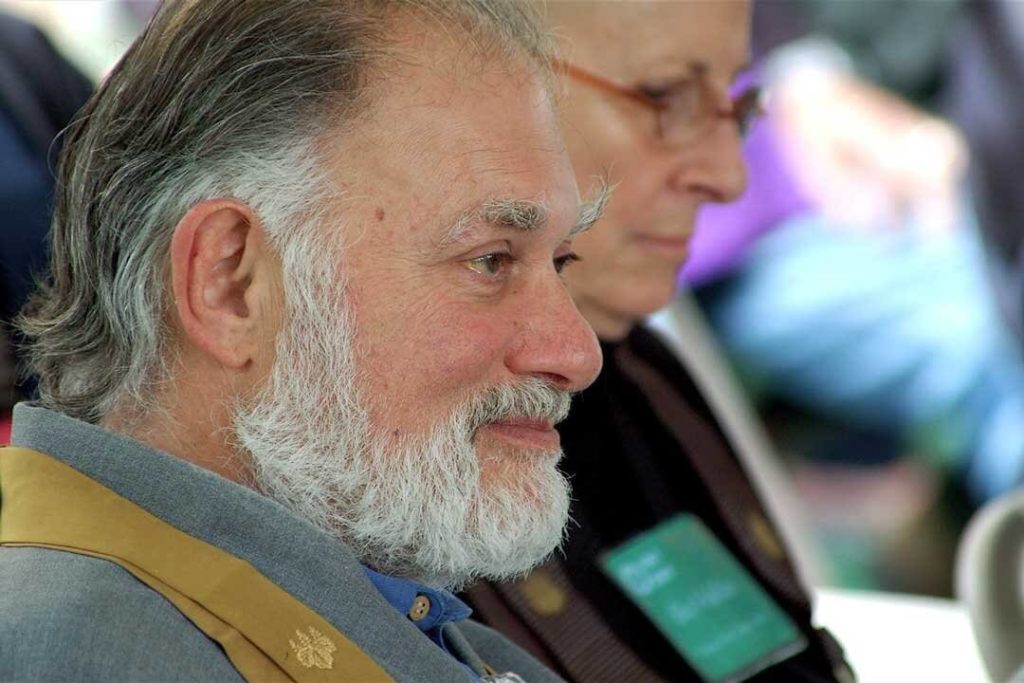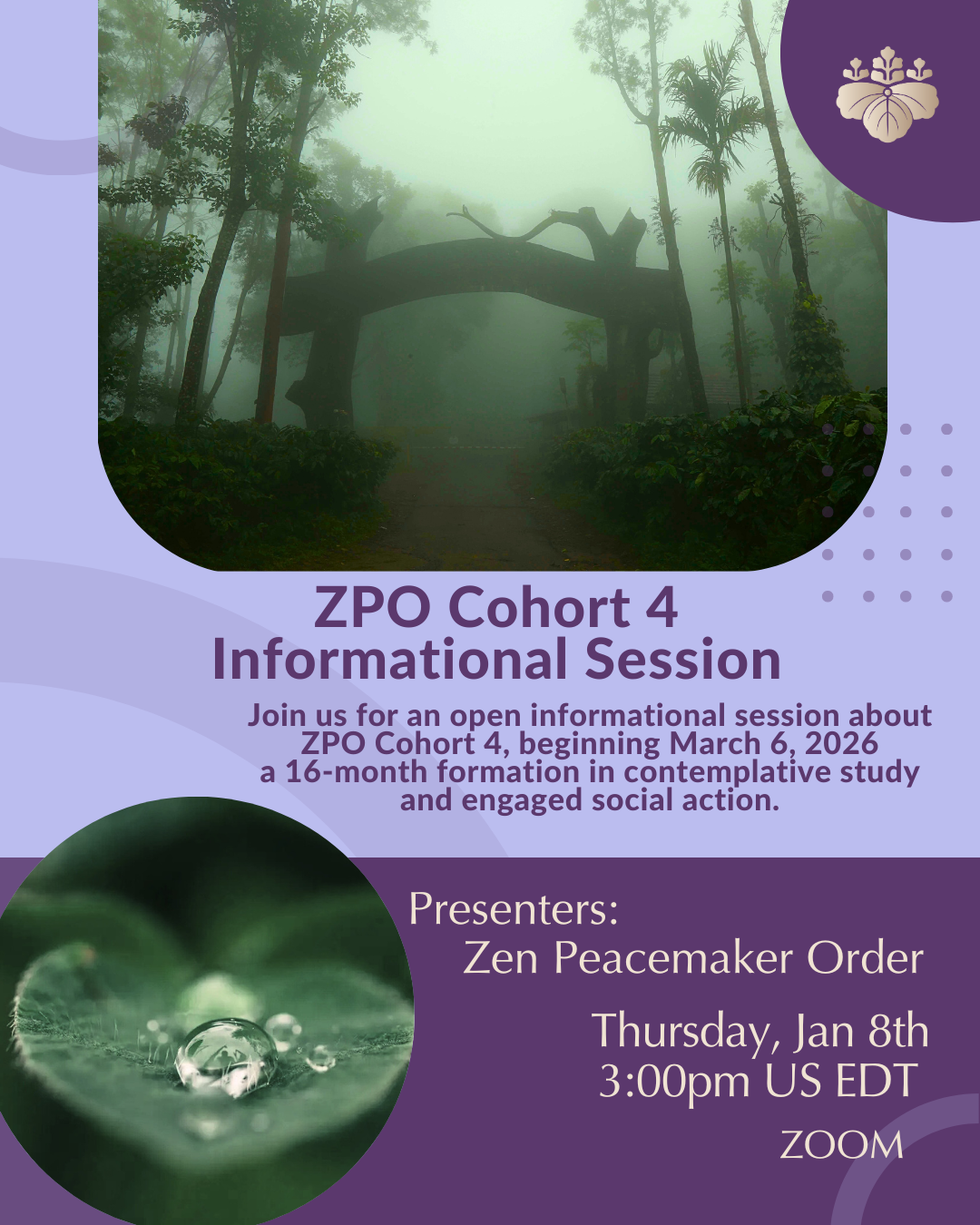I keep thinking about Bernie Glassman, especially when people are struggling to get involved. Some think there is nothing they can do here, the powerful are always in charge.
2. Sitting in a large circle, truly on the earth of Birkenau, with men and women of different ages, different religions or value systems, languages and cultures – some of us ordained in a religion, others practicing, others consciously non-religious: THAT was for me the most wonderful experience. Together. We got involved in ceremonies, but also practiced our respective "services" at separate locations in the huge cemetery. We were welcome everywhere. I got to know different fairs. Buddhist ceremonies. Jewish prayers and especially the beloved Kaddish. We prayed in many languages, including Arabic when there were Arabs, and twice in Russian. What I particularly liked and later also organized and celebrated more often myself were circles, in which everyone present could contribute, not just ordained representatives. I have experienced such circles with refugees, with war children and war grandchildren, with locals and guests (on Lampedusa, at sea, in Bonn). And those present are always very touched.
3. Let me sum up: Such peace circles can be called together very effectively with priestesses and priests of different religions/traditions. But these clergymen hardly or not perform any special functions (even in Birkenau there were only a few ordained WITH functions, although many were there “on duty”). It is the Peace Circle (or Zen Peacemaker Circle) itself that also carries out the transformational tasks of a priest or priestess, so all held the field to the best of their ability.
This describes the Sangha of the future, that is, the Sangha of today, in which not only ven. Bernie, but also ven. Thich Nhat Hanh, and anyway we women never stopped doing “our thing” in the family and extended family, praying and healing as we always liked.
I see good food for thought here for our personal and collective response to the war against Ukraine. Where do you see the “underserved place”? Can you imagine turning to this one? And how exactly?
You will find a suggestion for this in my next blog post. I am excited. Note: Those who are creative conquer fear. I bow.


